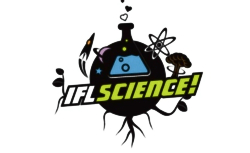Bioengineered Corneas Restore Sight To 14 Blind People In New Trial
Date: 10.8.2022
Scientists from Linköping University in Sweden made the bioengineered corneas out of collagen molecules derived from pig skin. Since this is a by-product of the food industry, it’s a low-cost material that’s readily available. Furthermore, they can be stored for up to two years after being made, as opposed to human donor corneas which need to be used within a couple of weeks.
 Bioengineered corneas have restored the vision of 20 people, 14 of whom were blind before they received the implant. It’s still early days, but the hope is that this method could provide an alternative to donated human corneas, which are in scarce demand.
Bioengineered corneas have restored the vision of 20 people, 14 of whom were blind before they received the implant. It’s still early days, but the hope is that this method could provide an alternative to donated human corneas, which are in scarce demand.
“We’ve made significant efforts to ensure that our invention will be widely available and affordable by all and not just by the wealthy. That’s why this technology can be used in all parts of the world”, Mehrdad Rafat, lead study author from the Department of Biomedical Engineering at Linköping University, said.
To test out the viability of their bioengineered corneas, the team provided them to surgeons in Iran and India, two countries where there’s hot demand for corneas due to high levels of blindness and a lack of treatment options.
The trial involved 20 people with keratoconus, a condition where the eye's cornea becomes too thin or loses its round shape, resulting in impaired vision.
The surgery is designed to be as non-invasive as possible. It involves making a small incision in the cornea using a laser (although the cut can be made by hand using simple surgical instruments if needs be) and inserting the transplanted cornea underneath the existing cornea. The patients are then simply given immunosuppressive eye drops and the job is done.
Image source: Thor Balkhed/Linköping University.























